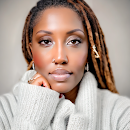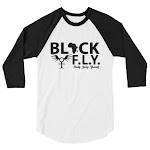When I first heard the news of D’Angelo’s passing on October 14, 2025, such a profound loss for the musical world, I found myself revisiting the momentous era of the Soulquarians. It felt fitting to reflect not only on D’Angelo’s brilliant solo work but also on the vibrant collective that helped reshape soul, hip-hop, and Black music at the turn of the 21st century.
In remembering D’Angelo, we must also celebrate the creative alchemy of the Soulquarians, a loose, experimental, deeply collaborative movement that dared to stretch genres, fuse influences, and make music that wasn’t just heard, but felt.
Origins: A Constellation of Visionaries
The Soulquarians weren’t a formal band so much as a constellation of kindred artists, musicians, producers, poets, rappers, who shared a musical spirit and a space to play. At the core were D’Angelo, drummer/producer Questlove, and producer/rapper J Dilla. From there the circle widened to include singer-songwriters like Erykah Badu and Bilal, rappers such as Common, Talib Kweli and Mos Def, producer–rapper Q‑Tip, and keyboardist / multi-instrumentalist James Poyser, among others.
Their name, “Soulquarians,” is often said to reference the Aquarius zodiac sign shared by several founding members. But beyond that astrological origin lies a deeper sensibility: a thirst for reinvention, a shared love of soul + funk + hip-hop history, and a willingness to embrace possibility rather than formula.
Significantly, the hub of their creative energy was the iconic Electric Lady Studios in New York City. Here they converged for jam sessions, shared experiments, unplanned collaborations, and late-night grooves.
The Sound: What Made the Soulquarians So Special
What made the music coming from this circle feel electric (and, frankly, timeless) were a few key qualities:
1. Genre-fusing and groove-based: Albums tied to the Soulquarians blended soul, funk, jazz, hip-hop, experimental textures and more. For example, D’Angelo’s Voodoo (2000) is described as “groove-based” and a departure from the more conventional structures of his debut.
2. Collective spontaneity and improvisation: The studio vibe at Electric Lady was not rigid; artists would drop in, lay down a groove, someone else would jump in, and magic would happen. Questlove described how one could walk into the “A Room,” not knowing who was recording, order food, watch a movie, and then: “Let’s play something.”
3. Authentic musical instrumentation and analog feel: The collective valued musicianship, vintage equipment, tape reels – sonic warmth, not just digital polish. For Voodoo, over 200 reels of tape were used when recording in 1997 alone.
4. Lyrical and musical depth: Whether in D’Angelo’s introspective spiritual moments, Common’s socially conscious rhymes, or Badu’s cosmic soul, there was an emotional richness, a refusal to settle for shallow pop.
Together, these elements gave the Soulquarians a vibe: deeply rooted in Black musical traditions yet boldly experimental and future-facing. For fans like me who are steeped in R&B, soul, and hip-hop, it felt like witnessing a renaissance.
Milestones & Highlights
Here are some of the landmark projects that bore the Soulquarians’ imprint:
- D’Angelo’s Voodoo (2000) – recorded with the Soulquarians, it reached number one in the U.S., and is considered one of the decisive moments of modern soul.
- Mama’s Gun by Erykah Badu (2000) – shares the same studio era.
- Like Water for Chocolate by Common (2000) – another example of the collaborative cross-pollination.
- Things Fall Apart by The Roots (1999) – one of the hip-hop albums that benefited from this milieu.
In all, the movement extended roughly from the late 1990s into the early 2000s, and while it didn’t last forever (commercial pressures, label constraints, personal trajectories all intervened) its impact was lasting.
The Personal: D’Angelo’s Role & What It Means
D’Angelo was not just a member of this collective, he was a linchpin. His own artistry, rooted in church, infused with funk, jazz, and soul, was given an expansive canvas through the Soulquarians’ ecosystem. According to Wikipedia: “The collective’s sessions… during 1997–1999 … resulted in several well-received albums.”
His album Voodoo in particular emerged from that milieu and stands as a masterpiece. The way D’Angelo played guitar, organ, sang, produced; all of it fed into the collective context. And his passing invites us to reflect not only on his voice, but on how he helped foster a community of creative freedom.
As a designer and digital-marketer (and someone who works with poetry, resilience, and storytelling) I’m struck by how the Soulquarians model something important: the power of collaborative spaces, of messy creativity, of resisting formula, and insisting on soulful authenticity. That matters whether one is in music, marketing, coaching, or design.
Legacy: What the Soulquarians Left Behind
Here are a few lessons and takeaways from their era that continue to resonate:
- Cultural hybridity is strength. The Soulquarians drew on gospel, jazz, funk, hip-hop, electronic, soul. For me, working in web design and digital marketing, the message is clear: rigid categorization limits, hybridization liberates.
- Community matters. These artists didn’t create in isolation. They were in one studio, one vibe, feeding off each other. Whether I’m coaching chronically-ill women or building my author visibility system, the idea of community and co-creation remains powerful.
- Artistic integrity over chasing trends. At a time when mainstream R&B was moving in one direction, the Soulquarians dared to go left, deeper, rawer, analog, imperfect. And that’s why their work remains.
- The fusion of business and soul is possible. While not everything was commercially massive, several of their albums achieved platinum status. They proved you can stay rooted in authenticity and still reach an audience.
- Your story matters. D’Angelo’s roots, faith, struggle, artistry: they all informed his music. As someone working in women’s resilience and chronic-illness advocacy, I know how the personal becomes the platform.
In Tribute — A Personal Moment
For me, in this moment of honoring D’Angelo, I pause and play Voodoo. I hear that deep groove, the warmth of the tape, the musicians breathing, playing live. I think of Questlove’s quote: “You’d just come into the A Room… watch a movie… then it’s ‘Let’s play something.’”
If you’ll permit a little vulnerability: one of the aspects of mentoring women with chronic illness is helping them reclaim voice, rhythm, and the body’s story. D’Angelo’s music, and the Soulquarians’ collaborative spirit, reminds us that life, pain, healing, and art are entwined. That music is not just what we hear; it’s how we feel, how we move, how we express and heal.
In my coach work, the invisible rhythm of resilience, the hum of authenticity, the boldness of showing up, these are musically analogous to what those artists achieved.
Final Thoughts
So to the Soulquarians, to D’Angelo, Questlove, J Dilla, Erykah, Bilal, Common, Talib Kweli, Mos Def, Q-Tip, James Poyser, thank you. Thank you for showing us what happens when Black music is allowed to breathe, expand, and speak on its own terms.
May this tribute spark ideas in my work: my Anthology of Visibility, my journal pages, my digital marketing, my coaching practice. The Soulquarians remind us that lasting impact comes from authenticity, collaboration, and the courage to go deeper.
As D’Angelo once said (in one of many stellar interviews) that he doesn’t claim to do “neo-soul”, he said: “I make black music.”
Let us continue to make the kind of work that resonates, that heals, that holds space, music for the soul, in whatever medium we serve.
Ms. Bina
The Renaissance Woman the Algorithm Warned You About











0 Comments
Thank you for reading!